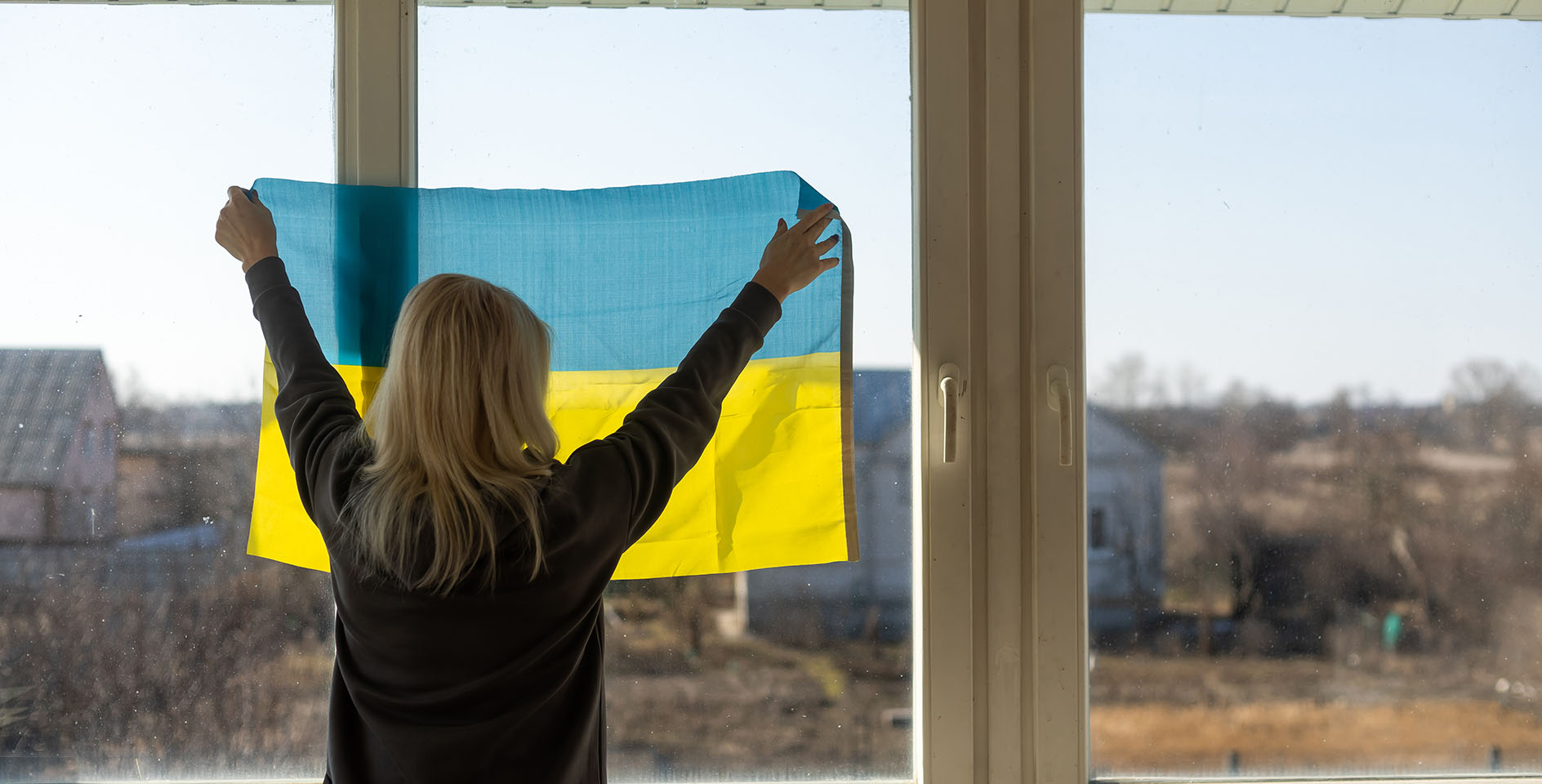We are emerging from the two deadliest years in our country’s history. Let that sink in. There’s a reason your Facebook feed has been filled with more memorial posts than usual, that your own calendar has beckoned you to attend more funerals than you have in years — if you were even able to be present. Many of us are more than ready to return to the before times, when death was some far-off reality, something we could deal with later. But — as the pandemic gives way to war claiming innocent lives in Ukraine — the Church has a unique opportunity to offer to the world words for what it is enduring. God’s people also have a chance to extend to the grieving a hope that lives even in the face of death.
No longer running from death
From 2019 to 2020, the death rate in the United States jumped by nearly 19%, and preliminary data from the Centers for Disease Control and Prevention indicates it jumped another 2% in 2021. If you survived the last two years, it’s likely you know someone who didn’t.
For me, it was my mom. I feared losing her for most of the 20 years since she was first diagnosed with cancer when I was in the seventh grade. But when her death came in 2020, I was surprised by God’s kindness hidden even in the hospice-calling and the funeral-planning. The psalms tell us that the death of each of those who die in faith is “precious in the sight of the Lord” (Psa. 116:15) and that he “is near to the brokenhearted” (Psa. 34:18). I found this to be palpably true.
God cares for the dying and the grieving, and he wants his people to do this well, too. After trying to ignore and outrun death for years, I was surprised to see that Scripture did neither of these things. God’s Word sat with me in the reality and weight of death, while patiently offering surprising hope in the face of it. It did not rush toward a tidy conclusion about my loved one being in “a better place,” nor did it stew in some dark sadness to which the world tells me I am entitled while grieving.
That’s because — unlike the counterfeits that offer us temporary reprieve — the hope we have in Christ in the face of death is not one that ignores or waters down its depths. It does not need to. No one acted like Goliath was not that big or menacing in telling the story of David defeating him. And no one needs to pretend the enemy of death that our Savior ultimately conquers is so small a foe.
To speed past either the anguish that accompanies death or the hope that is dawning on the horizon undermines the very gospel story we claim to believe. And it will not ring true to the realities in which we live.
We do not need to run from discussions of death or to hide what the Bible has to say about it. Rather, a more robust theology of death prepares us to walk well through life in a fallen world — and all the loss it entails. It gives us a category for so much of what we see and grieve in the world, from the natural disasters popping up on our newsfeeds to the wrinkles appearing on our own faces.
Considering death in light of its inevitability is not masochism; it is wisdom. It teaches us to number our own days, to labor — not in vain — but with eternity in view. Just like it helps to develop a theology of suffering — at least a hazy idea of how God might still be good when all is going wrong — before we dive headlong into it, it serves us to foster a theology of death before we are desperate for one.
So many around us are grieving specific and general losses. For too long, many churches have failed to give us a language and context for such grief and loss, even though the Bible provides each of these in spades. Considering with our churches and in personal study how the Bible views and addresses death gives us courage to enter into the broken places with others. It also prevents us from lobbing clichés at the grief-stricken that don’t align with Scripture and, frankly, do more harm than good.
Suffering with others
God’s people have a better story to tell in the face of death. Yet, too often, we don’t take the opportunity to tell it because we are uncomfortable with the mysteries inherent in our understanding of it. But I would argue that what the world is looking for, more than our certainty, is our willingness to co-suffer with those who are facing and grieving the reality of death.
When we attempt to do that, however feebly, we embody to others a Savior who faced death for us and experiences it with us. To that end, here are four practical ways God’s people can begin to better walk with others through death, offering to one another a form of the hope we are desperate for in times like these.
- Sit in the ash heap. Trusting God in the midst of our pain and others’ means we don’t have to explain it away. We can hold the truths that he is good and that this hurts in tension. And we can take a page from Job’s friends on those first seven days and just be quiet. The ministry of quiet presence is one of the greatest gifts we can offer to someone in the midst of grief.
- Return to the Word. In sharp contrast to Christian culture at times, the Bible has plenty to say about death and grief. It depicts both in ways that ring true to reality. If you’re in the thick of it or know someone who is, you can start by borrowing the language of lament found throughout the Psalms. Though we think of praise as defining the Psalms, there are more psalms of lament in the Bible than any other type, not to mention an entire book called Lamentations. Lament prayers say at least two things: “I am hurting. And you are a God who hears.”
- Remember the dead. The Bible also points us to a rhythm of remembrance that has sustained God’s people across history. It can do the same now as we turn to face death alongside those who can no longer ignore it. Consider regular opportunities to remember the dead and your own mortality, such as Ash Wednesday or even communion. Did someone at your church lose a friend or family member a year ago or five years ago? Rather than wondering “How are you?” try asking, “What was she like?” It’s a story they just might be longing to tell.
- Revive our Hope. Walking through death with others is a gracious reminder that we, too, will one day walk through these waters. Contemplating death allows us to consider Jesus’ words anew: “I am the resurrection and the life. Whoever believes in me, though he die, yet shall he live” (John 11:25). Consider as we walk through this season of Lent leading up to Easter that the hope is somehow heightened by being willing to face what is hard. It is because we are a people who die that it is good news to sing, “My Redeemer lives.”
When we grow a greater theology of death, we are also more equipped to offer to the world the kernels of hope it contains. I recently read a New York Magazine article in which an atheist confessed that pandemic losses made her wonder if she should try church again.
“Mostly I wanted a way to mourn,” Sarah Jones writes, “not just my own loss but the galloping mass death enveloping the world.”
Jones adds that she was raised to be “a strict conservative Christian” but that she abandoned the evangelicalism that was not, in her experience, “good with mystery, or with death.” Belief in an afterlife felt “too easy.” And yet, she found herself searching for something like it when death took her grandfather and then a friend.
“I didn’t need answers, not immediately,” she wrote, “but I wanted to know it was possible to find them if I worked hard enough to look . . . I wanted to stretch out my arms to something, even if I couldn’t tell what it was.”
The apostle Paul thought about death enough to develop a vision for being like Christ in it (Phil. 3:10). What opportunities, I wonder, are we missing if we don’t do the same?







